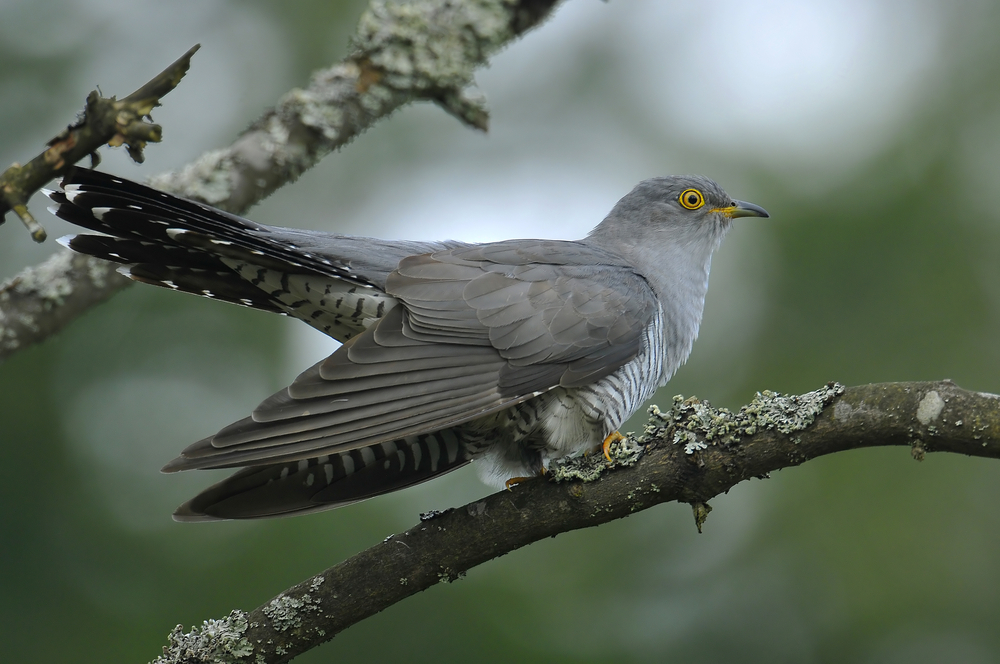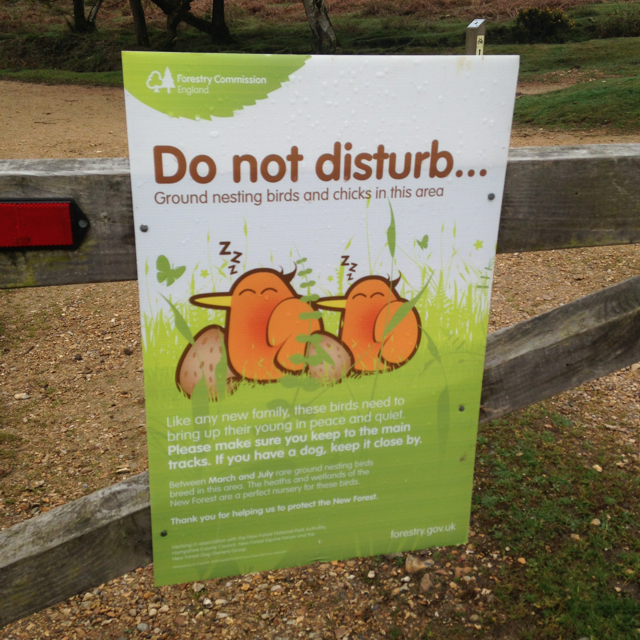(Posted 27 April 2015). Those people, who like me, rise early in the morning cannot have missed over the past few weeks the melodious symphony of the dawn chorus. The sound of bird song is much more noticeable from March to July because during this time birds are defending their territories and trying to attract mates. Not only do rival males from the same species compete with one another in repeated ‘sing-offs’ but there is also a multitude of avian species trying to raise their own voices in order to be noticed. Many of the bird species on the New Forest are actually heard rather than seen and for the majority of people who visit the heathland and woods the sound of bird song is a pleasant background noise to their primary activity. Unless you were a seasoned ornithologist you could be in the presence of a significant or rare species and not even know it.
The messenger of spring
However, there is one bird with a most distinctive call that many people are reporting hearing around the New Forest at the moment. ‘The merry cuckow, messenger of Spring, His trumpet shrill hath thrice already sounded’ – so said Edmund Spenser, the 15th century English poet. This cunning bird species (Cuculus canorus), which is about the size of a dove, has the look of a sparrow hawk and is well known for its parasitic brood habits. It is believed that the word ‘cuckold’, which refers to a man who is deceived by an adulterous wife and who possibly supports children that were not fathered by him, is derived from the word ‘cuckoo’. Nevertheless, the cuckoo is much favoured in folklore and it is generally believed to be a sign of good fortune when you first hear its call, unless you are in bed because then the portents are not so good. According to an old wives tale the state of health you are in when you first hear the cuckoo is how you will remain for the rest of the year. So you would best not be in bed and unwell! You will be the luckier however if you hear the cuckoo while you are out-of-doors, preferably standing on grass with money in your pocket! Wishes made upon hearing the call of the first cuckoo of spring are also supposed to come true.
Cuckoo Fair
In the middle-ages people believed that cuckoos brought spring with them and many festivals and celebrations of fertility were held in honour of the migratory bird. The Cuckoo Fair at Downton near Salisbury, Wiltshire, is the most popular event held locally and its fairs are recorded in the borough as far back as 1249. On hearing the first call of the cuckoo farmers would sow barley to ensure a good crop or give their workers ‘cuckoo ale’ to celebrate the arrival of the good weather associated with spring. According to legend the cuckoo can be heard from St. Tiburtius Day (14th April) until St. John’s Day (24th June), so if you haven’t heard it yet you still have time. Just make sure that you are prepared to make a wish, be standing on grass and have money in your pocket – but only if you are the superstitious kind of course!










You must be logged in to post a comment.